Magical Delicacy bridges genres and mechanics, bringing to life a vibrant world of magic and food that’s both engaging and calming. In this Metroidvania-inspired pixel platformer, you play as Flora, a young witch who’s just arrived in a new town, hoping to study under the powerful witches who live there. But upon arrival, Flora finds that most of the witches are gone, and the town holds more secrets than she first thought. Explore the vibrant environments through extensive platforming, forage and experiment with creating new recipes, and concoct heartfelt, magical delicacies for your new friends. Let’s take a look at Magical Delicacy!
A Feast for the Eyes
The immediate standout feature of this game is its art style. It is beautiful! Such care and attention have been given to each element of the world, with elaborate decoration, complex architecture, and vibrant environments. The pixel style is clear and readable, while bringing a distinct, warm aesthetic. The world itself is very elaborate, with an extensive map that always feels as if another area could be hidden around any corner. Traversing this world truly feels like exploring—uncovering hidden platforms, stumbling upon obscured doorways, and dying multiple times in multiple dungeons.
I will admit that I got lost quite a bit in the beginning. The layout took some getting used to, though the atmospheric choices and pacing made this feel more like an element of the game rather than an oversight. Magical Delicacy is about experimentation and experience, and the complexity of the space lends itself to the magical atmosphere. The times I got lost made the world feel much more personal when it eventually became familiar to me.
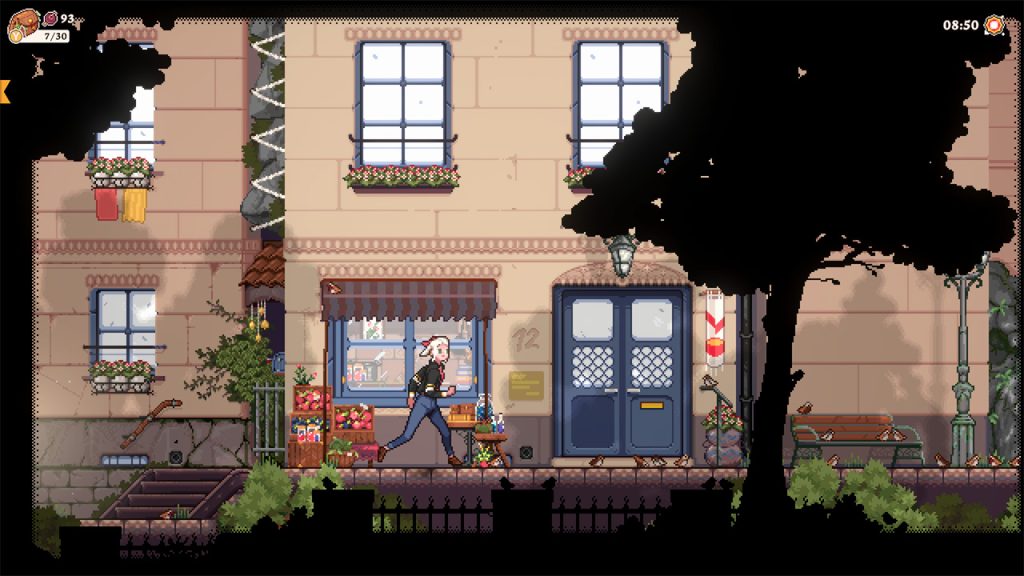
Slicing Through Obstacles
As is typical for Metroidvanias, progress is gated by your access to utilities. The pacing of this progression felt very natural during my playthrough and worked well with the elaborate design of the world. Areas felt as if they shifted, and any place could hold secrets to be discovered later. This helped to preserve the intimacy of the contained environment while maintaining the sense of exploration.
This attention to game design is present throughout Magical Delicacy. It feels like a real passion project, with indulgent level designs and mechanics. I love the cycling lift in the center of town, the satisfying feel of ingredient foraging, and the customization options. An odd thing to highlight, but I really love the death sequences. You’re not barred from jumping down holes, into spikes, or off cliffs, and the quick black screen and respawn feels like a parent picking you up by the scruff and dusting you off. What did you expect would happen? The most important feature, though, is that you can pet the cats. And they have little heart emotes when you do. Perfect.
Little touches like this add to the beautiful coziness of the game. Many elements certainly highlight its Metroidvania inspiration, but great care has been taken to reorient it into a world of comfort—progress without pressure. The music, for example, is calming and well-tailored to the world, without becoming repetitive. The sound design is subtle but suits the tone well, non-intrusive but supportive. Money can be gained simply by breaking pots around the world, which I found helped remove the stress of having to carefully balance my inventory and spending. Especially when walking around to collect money takes you back through the beautiful world and is innately calming.
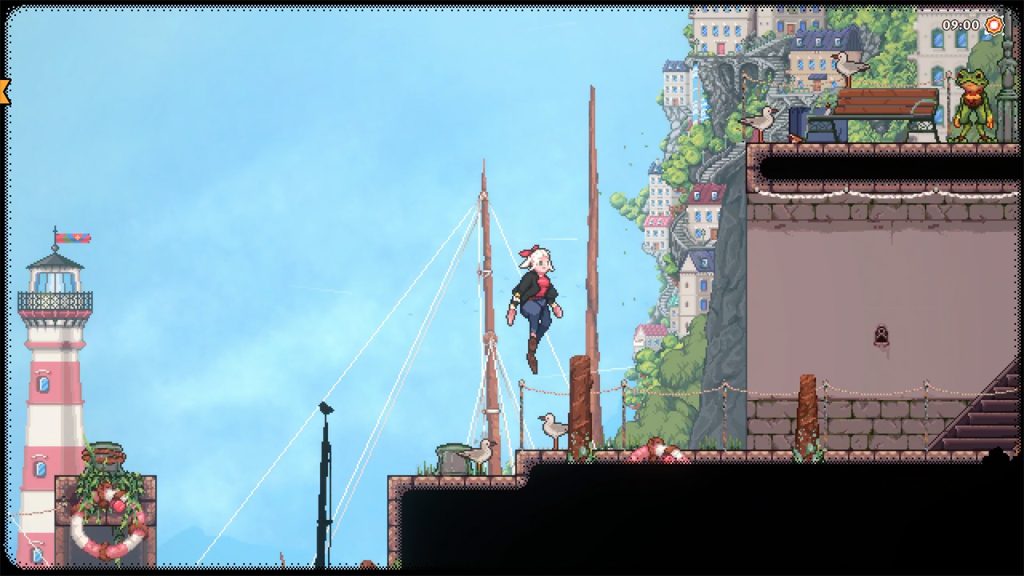
Well-seasoned Representation and Accessibility
With these careful decisions around tone, I’d also like to highlight their accessibility and representation choices. The accessibility menu is extensive compared to other games I’ve seen, with a variety of options to make items more visible, platforming easier, adjust different elements of screen brightness, and so on. There’s also a wide variety of characters, of different ethnicities, sexualities, genders, and abilities. All characters have indicated pronouns, including multiple sets (e.g., he/they), which I haven’t seen before in a game. The clear thought that has been put into player interfacing and its audience is not only just a good thing to do but also adds to the atmosphere, making the space feel inherently more welcoming. I instantly felt more comfortable when I saw someone who shared my pronouns. And if I could spend the rest of my life making sandwiches for gay frogs, I would.
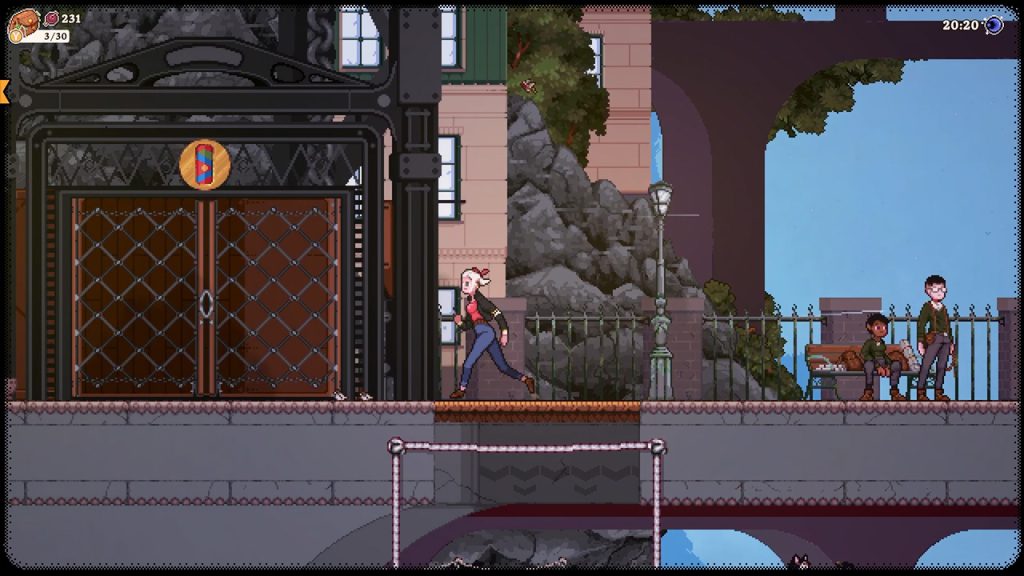
A Pinch of Dialogue
I do need to mention that at times the writing could use some work. Some of the character interactions felt a touch two-dimensional, with conversations that were blunt or lacked nuance. If I moved into a new house and there was already someone living there, I wouldn’t be nearly as chill as Flora was about my new, uninvited roommate. That being said, while it could take me out of the moment at times, it feels quite in line with other Metroidvania games I’ve played, where exploration of the world is the primary story driver over dialogue. And for the most part, it gave me Pokémon nostalgia, so it didn’t bother me all that much. I found the overall story compelling enough. While it wasn’t completely groundbreaking, it didn’t need to be, acting as a good catalyst for the gameplay. I did quite like the concept of the Ryverfarers; protectors who go a little too far is a plotline I can definitely get behind.
Cooking: A Recipe for Connection
All said, the primary feature of this game is the cooking—exploring the world, assembling treats, and delivering them to your friends. I personally really enjoyed this gameplay; the experimentation felt logical yet magical and touches on one of my favorite story tropes—food as a tool for connection. You take every step of the process into your own hands, from growing the food to grinding the flour, and it all culminates in a meal that feels truly crafted for and tailored to the recipients. It’s honestly got me inspired to cook for my friends more often.
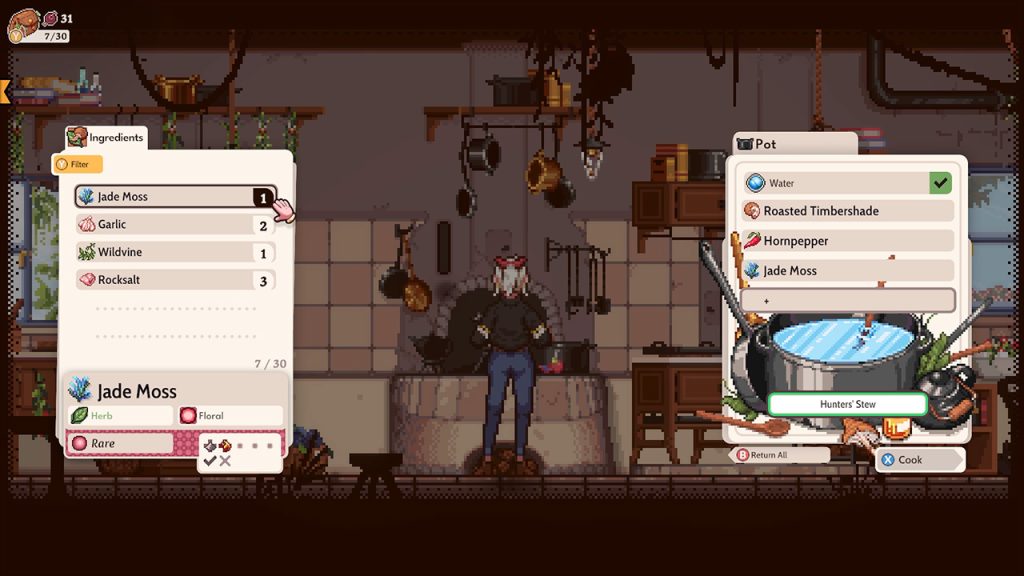
Simmer Down and Savour
As my final point, I want to touch on how you should approach this game. Looking over some Steam reviews, I feel like some people have missed the point a little. As much as this game is Metroidvania-inspired, it’s not solely a Metroidvania game—it’s fusion. Magical Delicacy is about taking your time and indulging in each moment. Approaching a game with a cat-petting mechanic like it’s a bullet-hell will only bring frustration. There are benches throughout the world where Flora can sit and just look at the town around her. It’s designed to be wholesome, not to be speedrun. I don’t recommend jumping in and trying to get through the main plot as quickly as possible or immediately blasting through every catacomb. Get to know the characters, experiment with making new recipes, pet the cats. A lot of love and heart has been put into this game, and rushing through it does a disservice to everyone.
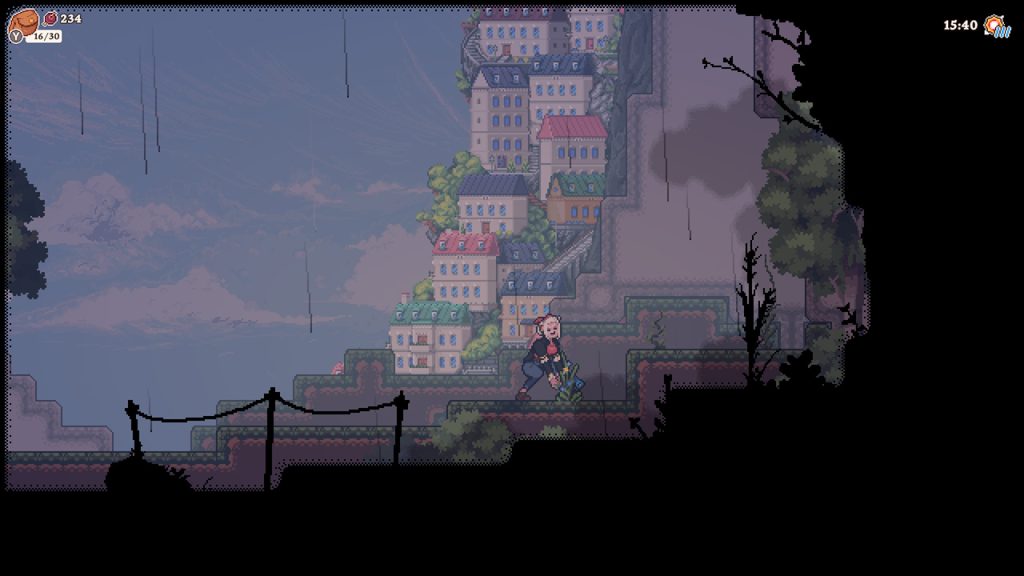
Conclusion
Magical Delicacy is a wholesome exploration of community and care, with engaging platforming and versatile cooking mechanics. If you’re looking for something to dive into and leave feeling refreshed, definitely give this one a go. I, for one, see myself continuing long after I finish typing.

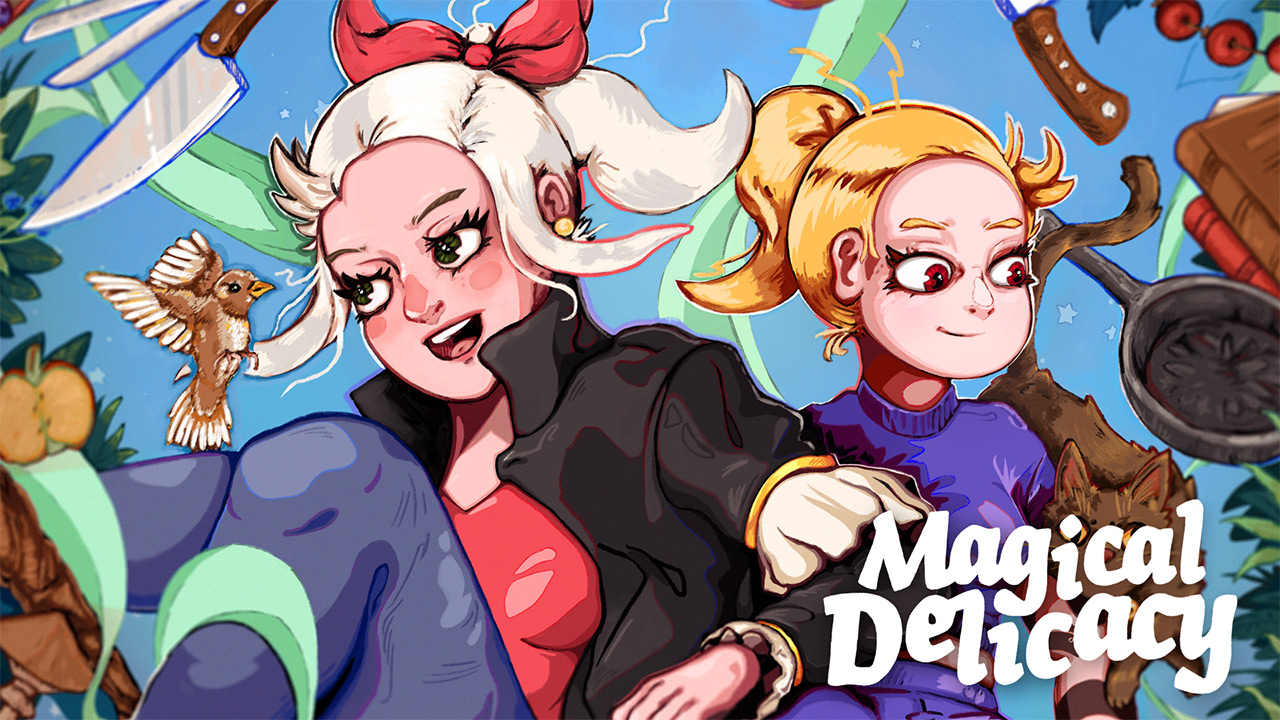
Leave a Reply